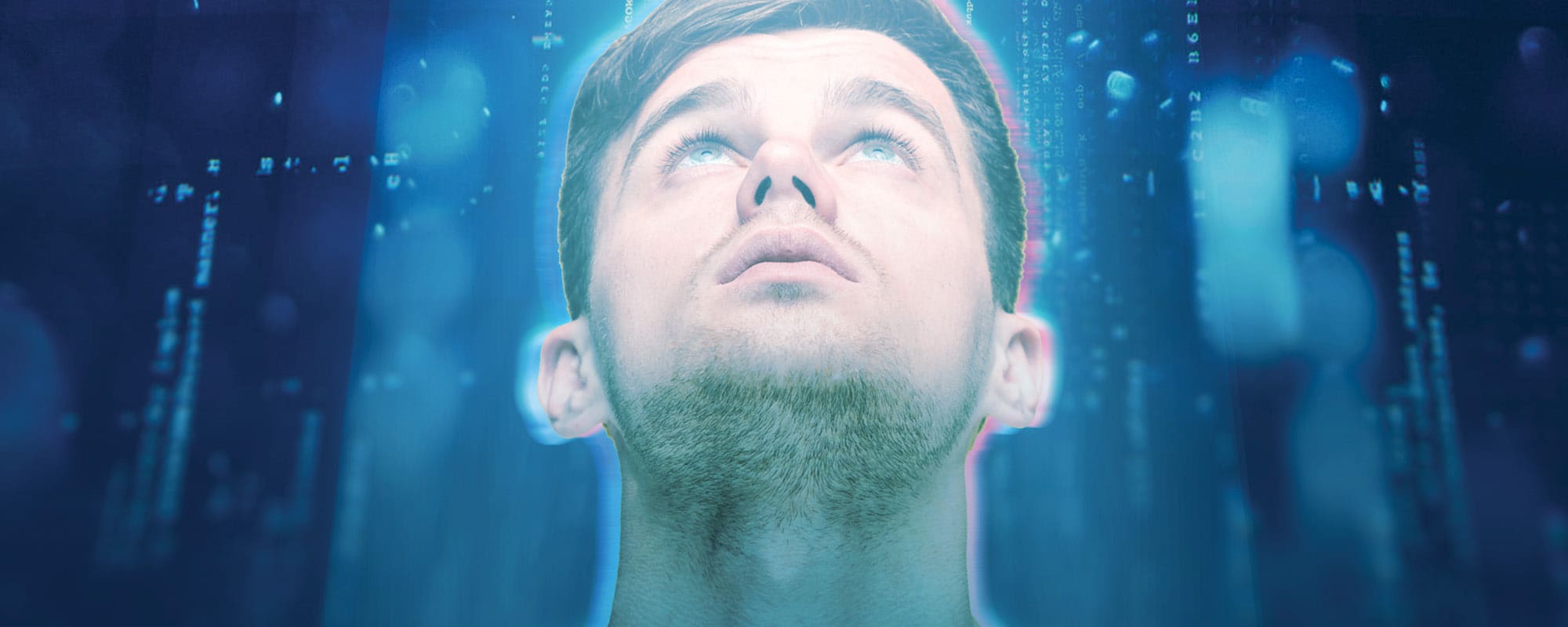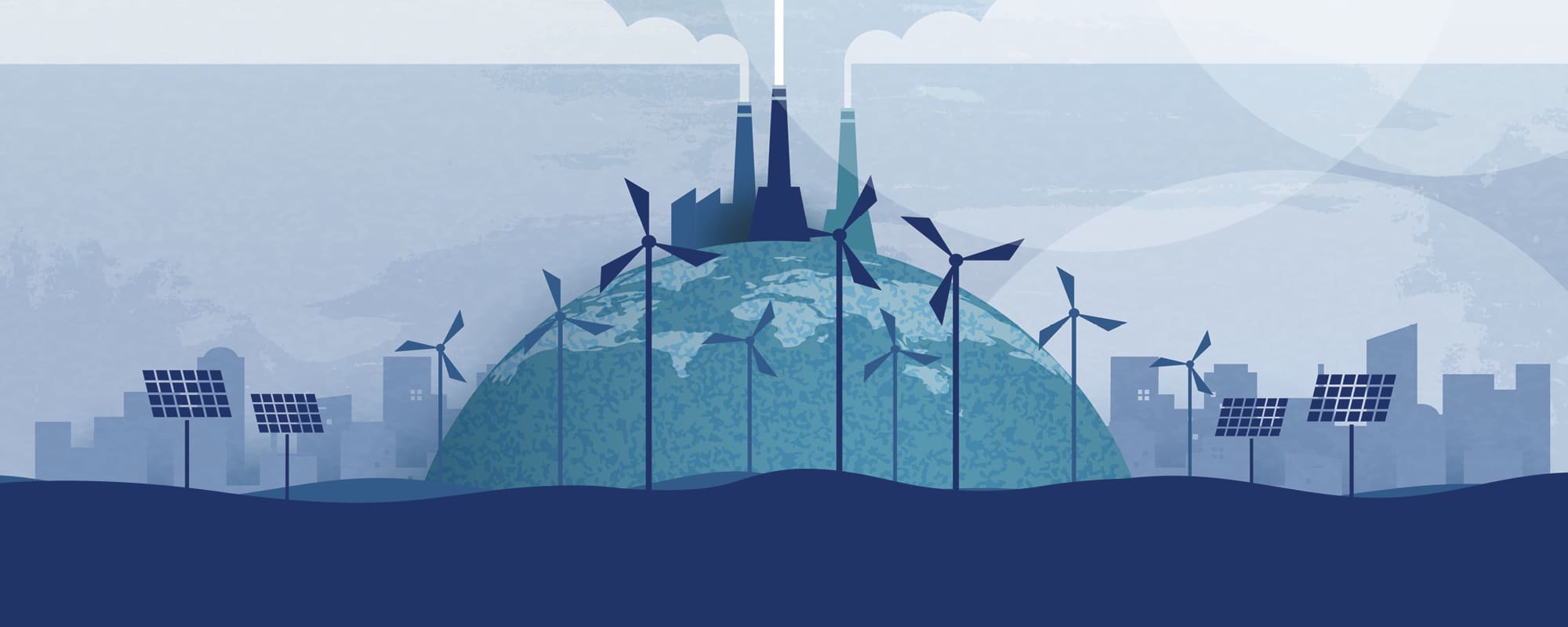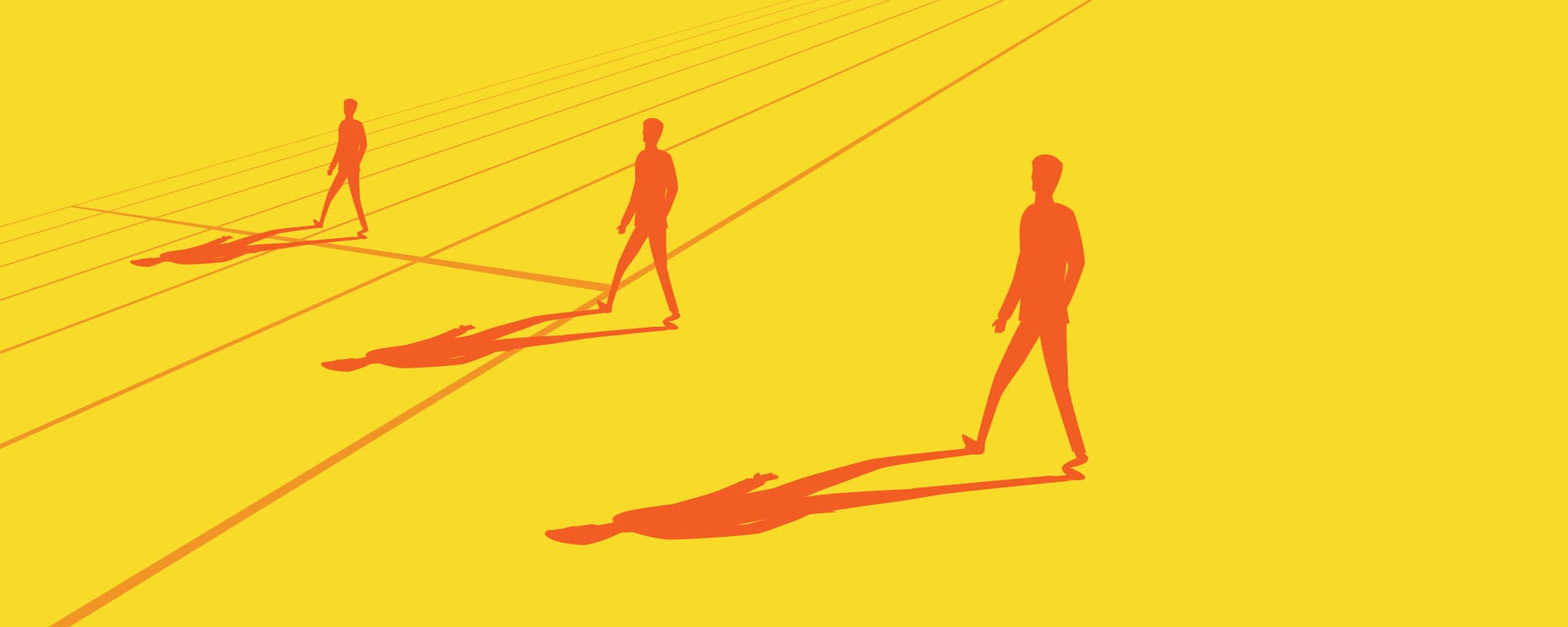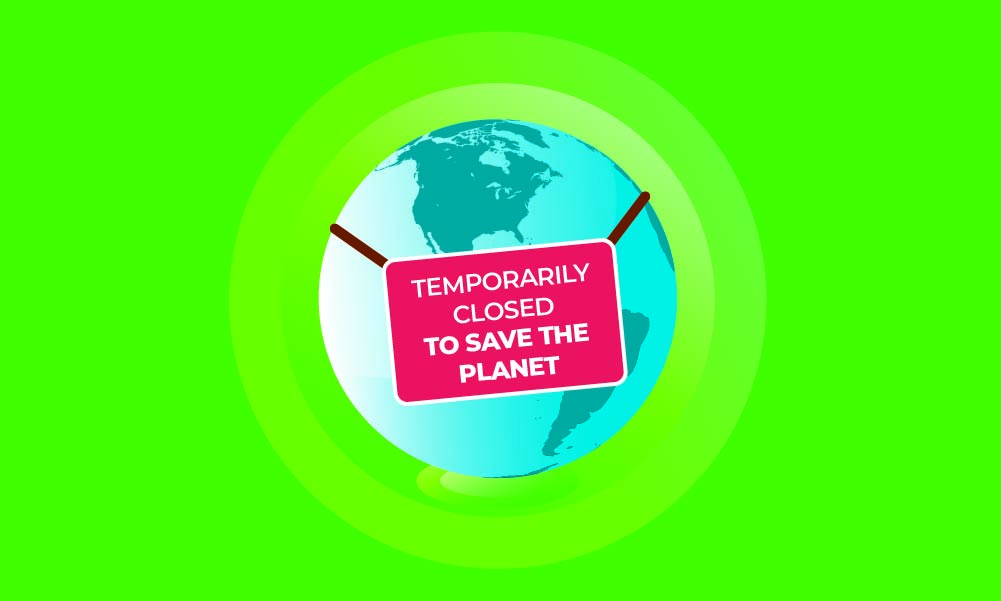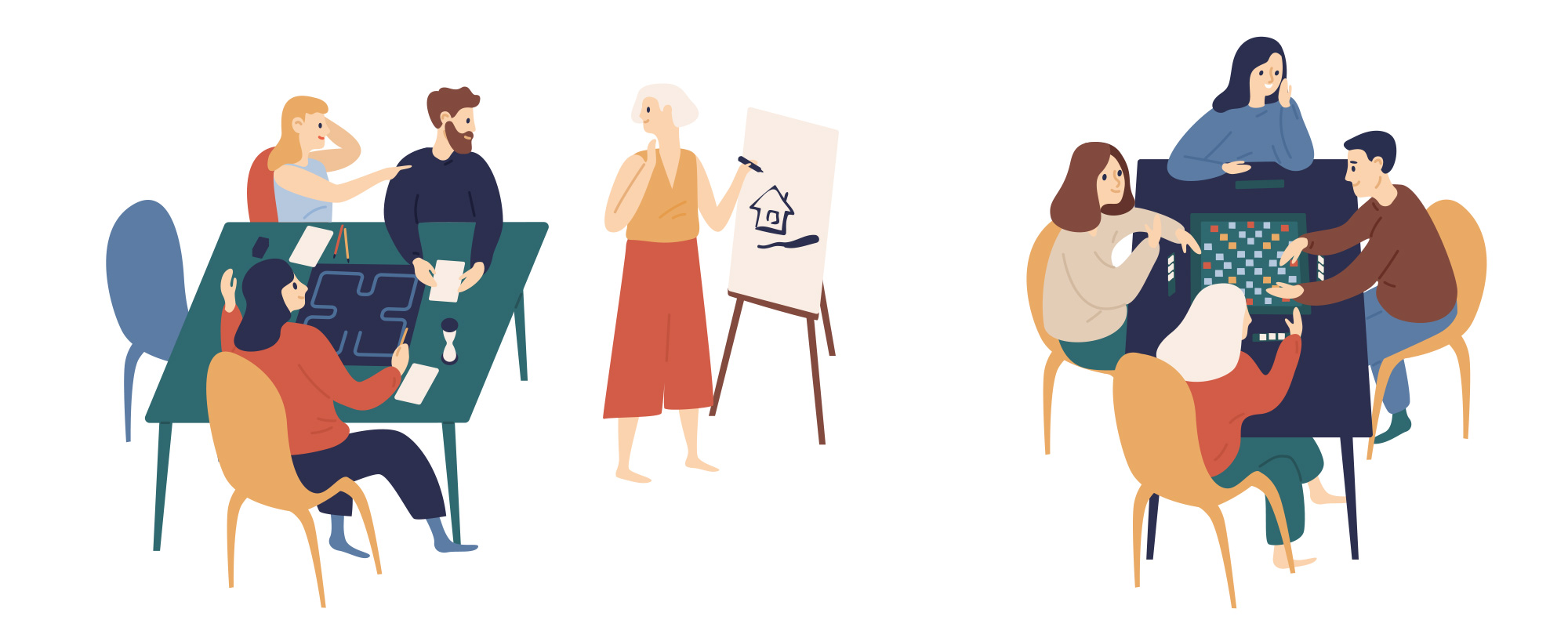What if technology allowed us to map our entire brain? What if we could upload ourselves into an online world to live forever once our body wears down? Would that be a genius piece of technology or a beehive of unethical practices?
Continue readingMust There Be Winners and Losers as We Go Green?
Climate change is a growing problem. The longer we go without making sacrifices, the greater the price that must ultimately be paid. The problem is made worse, however, because when it comes to phasing out fossil fuels, some people must automatically pay a higher price than others. So who would the winners and losers be if we suddenly drove forward to significantly lower emissions by 2030, as the European Union intends?
Continue readingTrue Happiness
What kinds of happiness are there, and what kinds of happiness should we prioritise? Jonathan Firbank explores Masahiro Morioka’s ‘happiness drug’ thought experiment in the face of an increasingly medicated world.
Continue readingThe Worth of your Time
Jonathan Firbank investigates the conditions that led to the ‘Great Resignation’, where millions of people resigned throughout the COVID-19 pandemic. He discovers that it is less a consequence of an ‘anti-work movement’ and more a result of the mental health issues that workplaces can cause.
Continue readingTranshumanism: A Dangerous Two-Way Street
What is the next evolutionary step for humanity? One possibility is the merging of man and machine. But is humanity ready for transhumanism, and how should we prepare for it? Christian Keszthelyi finds out!
Continue readingHibernating Humans
As lockdowns spread worldwide and grounded planes crippled international tourism, humanity cut the environment some long-awaited slack. With the climate change debate heating up (proportionally to the planet’s temperatures), THINK investigates what would happen if humanity’s only chance to preserve our planet is a yearly 3-month lockdown?
Continue readingZooming in on urban design
From research-based interventions in New York to a children’s local council in Malta, international minds look for ways to create better urban design to increase residents’ quality of life. Martina Borg and Daiva Repeckaite tune in to hear their thoughts.
Continue readingInnovators play a different game
South Africa-based entrepreneur Rapelang Rabana says that when it comes to innovation, the skills and experiences we accumulate over our lifetime are better resources than formal qualifications. Words by Daiva Repeckaite.
Continue reading#GetLearnD
Students tutoring students
According to MATSEC, two in every three 18-year-old students don’t make it from sixth form to university. Gail Sant speaks to the team behind LearnD to find out more about their take on student-centred education.
You love films, videos, and photos. You relax while watching Netflix, and learn new skills on platforms like Skillshare and YouTube. Me? I adore the written word. Books, magazines, blogs are all I need to live a happy life. People are unique. And we all learn things in a unique way.
Different people require different teaching methods to learn. But most classroom set-ups involve one teacher, one lesson, and thirty-odd students. The lesson is interpreted in thirty different ways; a few absorb more than others, leaving some in need of extra help to ace their maths test. And how do they do that? With private lessons.
In Malta, private lessons are the go-to solution for students struggling with a subject. However, these sessions tend to be a carbon copy of school classes: one tutor, one lesson, multiple students. This problem was the seed that gave rise to the education-focused startup LearnD.
The philosophy
LearnD is a tutoring app invented by Luke Collins, Jake Xuereb, and Dr Jean-Paul Ebejer (Centre for Molecular Medicine and Biobanking, University of Malta). The concept behind it is simple, Ebejer says; ‘it’s a bridge between students who can act as mentors and students who need the help.’
LearnD does away with the one-size-fits-all standard of teaching and offers students tailor-made tutoring. Individuals are treated as such, their problems tackled through dedicated sessions. As a student, you don’t need to sit through a whole syll

abus of private lessons. The idea is to identify your weak points and hone in on them in select sessions. This is both time and money-efficient.
Xuereb believes ‘private lessons can make students lazy.’ They don’t need to evaluate their problems, or focus on where their issues lie. Not when they know they’ll just cover all the topics at various points during their weekly appointment with their second teacher on Tuesday night. LearnD focuses on dividing attention unequally. If you get an easy A in physical chemistry but struggle to pass organic chemistry, it only makes sense to give the latter some extra TLC. To get to this point, students need to take a step back from their desks and separate their strengths from their weaknesses.
This is also a big plus for tutors who don’t want to (or can’t) commit to teaching a whole syllabus. They can simply prepare a lesson for the requested topic and leave it at that, earning some extra money to accompany their stipend while gaining teaching experience.
But LearnD isn’t just about academia. Some lecturers lose touch with ‘the student life’, distancing their relationship with students. Conversely, student-tutors know the struggles a peer would be going through and can provide support. ‘No one would have a better understanding of what a sixth former needs to do to get into medicine than a medicine student,’ says Xuereb. ‘Through LearnD you can find people who have been through the exact same thing and who can offer their best advice on anything from time management to de-stressing, and everything else.’
Making it happen
The original concept was more related to finding a way for academically inclined 6th form students to contribute productively to society,’ says Xuereb. When he spoke to Collins, a fellow University of Malta student and Xuereb’s former maths tutor, the idea went from ‘an online local network’ to ‘app’. At the time, there were no local tutoring apps.
Despite both being passionate about the idea, they soon realised that they needed someone with business experience, and that’s where Ebejer came in: the LearnD team was born!
The process that made this idea into reality was not a simple one. Xuereb and Collins spent over six months working on the app, learning about the tech behind app-making and coming up with a business plan.
They got their break when they won the Take-Off Seed Fund Award in 2018 and got the necessary funds to make the app a reality. They quickly got the ball rolling, hiring designers, app developers, and marketing agents. The team grew; the app was built. Then, during the KSU Freshers’ Week in 2018, the app was partially launched, inviting potential tutors to apply. The app is now fully launched and available for students.
Troubles

As with all big projects, the team ran into a few setbacks along the way. One prominent techy mishap didn’t allow them to launch the app on the Apple Store, making it difficult to keep up with the launch date.
Since the app is used by underage students, there were also a lot of safety features which needed inclusion. Tutors upload their police conducts and ID cards. Also, to make sure LearnD’s service is reliable, the team not only analyses tutors’ qualifications, but they also try and test each applicant out themselves. And for accounts which belong to students under the age of 16, parents need to authorise any communication which goes on through the app.
The team persisted through the struggles they encountered and continue to work hard to solve any problems which crop up. Despite difficulties with time management, Collins and Xuereb, both undergraduate students, expressed how this app allowed them to dive into the working world. They gained entrepreneurial maturity, understanding the importance of a reliable team which shares the same ideas and work ethic, as well as dividing funds for the project’s overall benefit.
A LearnD future
The LearnD story doesn’t stop here. ‘We want to renovate the education space,’ says Ebejer, adding that they wish to take the next step and make it internationally available. Malta’s size makes it the perfect test bed, but they think that the app shouldn’t be limited to its home.
According to MATSEC, in 2017 only 27% of 18-year-old students acquired the necessary qualifications to get into university. Collins expressed that students ‘shouldn’t get lost’ because of a bad exam result or because of a mismatched student-teacher scenario. Students deserve to be treated as individuals, and LearnD can offer them that.
The revolutionary act of owning less
When our wardrobes are bursting, when cars take over our streets, when stuffing our fridges and eating out trumps reading, theatre, cinema—how does that impact us? Cassi Camilleri writes.
Marie Kondo’s epic trajectory began in 2014 with a little book called The Life-Changing Magic of Tidying Up. Available in over 41 regions and countries, she sold over five million copies. Now she’s on Netflix, reaching millions more with Tidying Up with Marie Kondo, all the while becoming the most badass / kawaii meme the world has ever seen.


At this point, Kondo has almost single-handedly made decluttering a global trend. But there is more to this movement than getting rid of junk.
Kondo’s approach is about making the time to actually look at the items we own and purposefully ask whether they serve a true function in our life—whether they give us ‘joy.’ In a world where ‘more is more’ and hundreds of ads scream at us daily, creating neuroses while simultaneously providing the avalanche of products to fix them, the attitude is sadly novel.
Taking time to appreciate our possessions is not something we do often. And this is not entirely our fault. Doing so could see us labelled as ‘materialistic.’ But this brings up the question of what that word actually means.


In the documentary Minimalism: A Documentary About The Important Things, Joshua Fields Millburn, one half of The Minimalists duo, flips the notion on its head. ‘We are too materialistic in the everyday sense of the word, but we are not at all materialistic enough in the true sense of the word. We need to be true materialists, like really care about the materiality of goods.’
Here, Millburn is referring to quality instead of quantity. One reliable well-made pair of jeans will last you longer than five cheap ones. The result? You generate less waste. You spend less money.
In Malta, we produce 248,784 tonnes of garbage annually, according to the material flow analysis conducted by researcher Margaret Camilleri Fenech. That’s equivalent to eight houses made entirely of garbage. Think of the pollution generated by waste when transporting and treating it, or the greenhouse gases emitted when it decomposes, or the space it needs. With our countryside disappearing at alarming rates, wasting the remaining space on waste feels sinful.
But let’s just pretend that this whole environmental thing is being blown out of proportion by a tribe of hippy die-hards. What about us? How do our spending choices affect our quality of life? How do our habits impact our pockets?
In 2015, the National Statistics Office (NSO) reports, total annual expenditure of Maltese private households amounted to an average of €22,346 per household. Suffice to say, this is a considerable number given that the average wage that same year was somewhere around €16,500, according to online platform Trading Economics. What’s more important, however, is how the money was spent.
A close look at the NSO’s report revealed that the majority of funds went towards food and transport, commanding 34% of all spending. On average, households spent €4,417 on food in 2015. Fuel for cars alone amounted to a yearly bill of €1184.50. We also spent an annual average of €720 on clothing, €1000 on our phones and internet services, and a whopping €1,749 on eating out.
On the flipside, education accounted for only 2.4% of household spending, €624 yearly, making this category second to last on the priority list. Yes, this can be partly attributed to free education in Malta; however, in households without dependent children, we can also see that only €36 were spent on books that were not textbooks over the entire year. Another NSO survey (with Arts Council Malta and the Valletta 2018 Foundation) found that 55% of the population didn’t read a single book in 2016. That same study looked at the experiences we fill our time with, finding that less than half of us (42%) went to the cinema even once that year, while only a third (31%) visited an art gallery or experienced theatre (32%).
Looking at these figures, it seems our priorities are dominated by cars, internet services and restaurants. Yet isn’t that ironic when a quick scroll through Facebook reveals so many complaints about unprecedented levels of traffic, narcissism, laziness, and a lack of critical thinking?
What is powerful about this, though, is the realisation that we can change it instantly. Instead of going to the fancy new restaurant in Valletta this weekend as we always do, we could choose to cook a nice meal at home for friends then sit down with a good read. We could switch out the Sunday drive with a run in the rural parts of our island. And question yourself: Do I really need that new €15 sweater when I have another 20 that look just like it sitting in my wardrobe? Or do I want to put that money towards a family weekend away?
All this might sound minor, even ridiculous. But making deliberate choices about how and where we spend our hard-earned resources has a profound impact. Asking whether a particular purchase will ‘bring joy’ can spark answers that surprise us. And those answers may well trigger a ripple effect on our lives as a whole.
Saving money will allow us to work less and free up more time for meaningful activity with the important people in our lives. Investing in ourselves and our minds will see us becoming better, more well-rounded people. Can we say the same for the momentary rush we get after dropping an obscene amount of money on a new phone manufactured under questionable ethical standards?
At the end of the day, it’s all quite simple. If we all tried to be a little bit more mindful, a little bit more careful about where our money goes, which systems we feed, and what we allow into our lives… well then we could—quite literally—change our world.
Read more: Household Budgetary Survey 2015. National Statistics Office, 2018.

